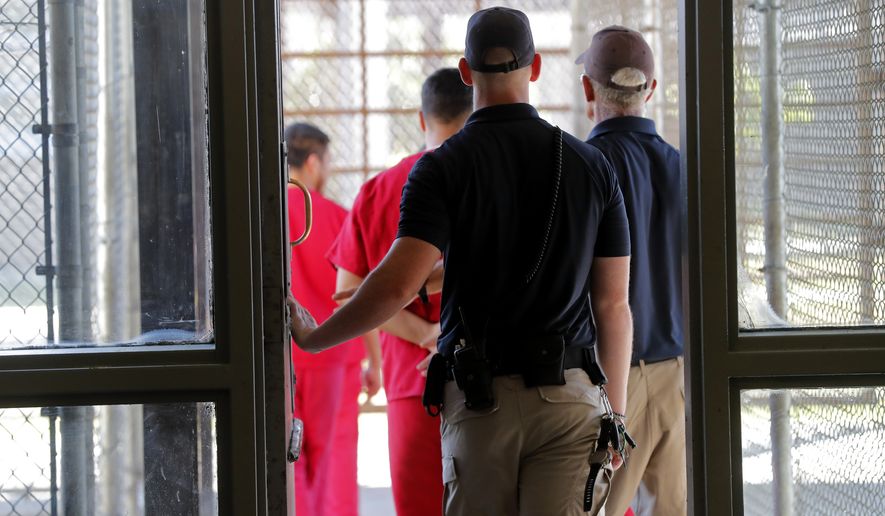The Justice Department announced Monday that it will require the Department of Homeland Security to collect DNA samples from the migrants it arrests, in a move that likely will add hundreds of thousands of names each year to the government’s criminal database.
The proposed move drew immediate pushback from civil rights groups, but the Trump administration said a 2005 federal law envisioned the step and the government should have been collecting the data all along.
“The proposed rule change would help save lives and bring criminals to justice by restoring the authority of the attorney general to authorize and direct the collection of DNA from non-United States persons detained at the border and the interior by DHS with the ultimate goal of reducing victimization of innocent citizens,” said Deputy Attorney General Jeffrey A. Rosen.
Migrants arrested by Customs and Border Protection or U.S. Immigration and Customs Enforcement would have DNA samples taken and sent to the FBI, which would then put the DNA information into its Combined DNA Index System, or CODIS, database.
The database is used to identify criminals and assist with investigations through the sharing of DNA with local law enforcement.
Failing to collect DNA from migrants arrested by Homeland Security has allowed some violent criminals to evade justice, according to an August report by the U.S. Office of Special Counsel, an independent agency that monitors whistleblower complaints and compliance with federal law.
The Border Patrol arrested 330,000 people in 2017 but took DNA samples from fewer than 100 of them, the Office of Special Counsel said in a report.
In one case, a suspect in an unsolved Dallas homicide was in CBP custody in 2013 and 2016 but was released each time without being linked to the killing. DNA was finally taken after a second arrest in 2016, and the suspect was tied to the killing, the report said.
The same situation played out in a Denver homicide case in 2017.
Under the DNA Fingerprint Act of 2005, law enforcement is required to collect DNA from everyone who is arrested or detained in federal custody, except in limited circumstances.
However, the Obama administration carved out an exemption for detained migrants. It was supposed to be a temporary exemption, with Homeland Security asking for more time to ramp up DNA collection, but it has remained in place since 2010.
If the Justice Department succeeds in restoring the rule, it will apply to migrants who are arrested, facing criminal charges or convicted. CBP alone made more than 800,000 arrests at the border over the past year.
Children younger than 14 and anyone entering the U.S. legally would be exempt from the DNA collection.
The Justice and Homeland Security departments this year established a pilot program to test DNA collection, anticipating the rule change. A pilot program overseen by the Justice Department will be in place after the 20-day comment period ends.
The Justice Department said the FBI lab is ready to handle the workload.
Critics said the DNA collection is another step in President Trump’s attempt to portray illegal immigrants as criminals.
“This proposed change in policy is extraordinary in its breadth and transparently xenophobic in its intentions,” said Naureen Shah, a lawyer with the American Civil Liberties Union. “It seeks to miscast these individuals, many of whom are seeking a better life or safety, as threats to the country’s security.”
• Stephen Dinan can be reached at sdinan@washingtontimes.com.
• Jeff Mordock can be reached at jmordock@washingtontimes.com.




Please read our comment policy before commenting.